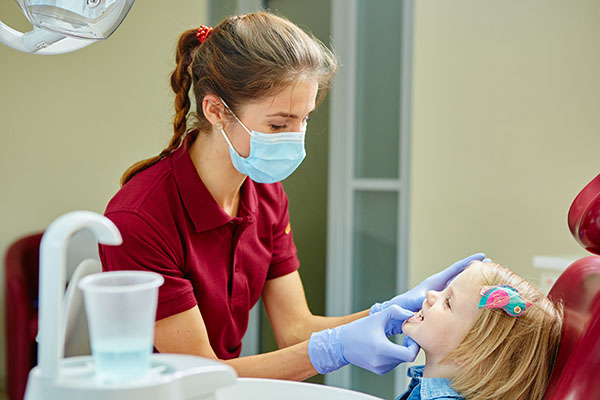 Plaque is a common pediatric dentistry issue. Brushing and flossing daily can help remove some of the plaque. Yet, without routine pediatric dentistry checkups, plaque will keep replenishing its layers. This can lead to serious dental issues for your child. If you want to know the possible outcome of unscaled plaque, here are the details.
Plaque is a common pediatric dentistry issue. Brushing and flossing daily can help remove some of the plaque. Yet, without routine pediatric dentistry checkups, plaque will keep replenishing its layers. This can lead to serious dental issues for your child. If you want to know the possible outcome of unscaled plaque, here are the details.
Tartar buildup
This sticky, translucent coating that does not stop forming on and in between the child’s teeth is dental plaque. It is a thin film of harmful bacteria. Plaque often collects along, above, and below the gumline. It will harden over time and transform into tartar or calculus.
After every snack or meal, bacteria in plaque feed. Then, these microorganisms excrete acids to weaken the enamel of the child’s teeth. The longer the food particles stay on the teeth, the more the bacteria feed. This results in more acids bombarding the enamel. As acid attacks repeat every day, the enamel weakens. Then, the formation of cavities starts.
The accumulation of tartar below the gumline can cause gum tissue inflammation. This can lead to pediatric dentistry problems like gingivitis and periodontitis (gum disease). Continuous plaque collection can lead to the structural damage of teeth, gums, and jawbone. It may also result in general health complications.
Calculus bridge
Untouched plaque hardens. It tends to affect multiple teeth. This connecting line of dental calculus is the calculus bridge. Such an accumulation cannot strip off with regular brushing or flossing. The parent should bring the child to the dentist for pediatric dentistry treatment. At the clinic, the pediatric dentist has a scaler for scraping off the calculus bridge and plaque.
Gingivitis
Plaque removal is an important pediatric dentistry procedure. Failure to remove plaque leads to gingivitis or the inflammation of the gums. The first sign of this condition is bleeding when flossing or brushing. This can lead to periodontitis if it does not get treatment.
Bad breath
Plaque accumulation can lead to halitosis or bad breath. Bacteria live in plaque. As these organisms feed, food particles break down. Even if the child brushes or flosses, food particles still stay as part of plaque and calculus. The foul odor comes from the buildup of plaque and tartar.
Cavities
Tartar is a hardened substance. It stays on the teeth. Tartar blocks the toothbrush from touching the teeth. This results in the weakening of the enamel. The openings created by tartar allow acid and bacteria to seep into the tooth. This results in cavity formation.
Tooth loss
Plaque must have a pediatric dentistry treatment. If the child’s teeth do not get regular deep cleanings from the pediatric dentist, the plaque becomes tartar. More bacteria penetrate the child’s teeth. Over time, the tooth deteriorates. It will need pediatric dentistry treatment such as dental extraction.
A pediatric dentistry check can determine if your child has plaque
Children should have good dental health. Primary and permanent teeth should always go through routine pediatric dentistry checks. Healthy teeth always lead to a healthy body. An appointment with your pediatric dentist will help make your child’s dental and general health optimal.
Request an appointment or call Precision Orthodontics & Pediatric Dentistry at 703-391-8800 for an appointment in our Reston office.
Recent Posts
Fluoridated water is part of pediatric dentistry. It is a convenient and easy way to strengthen and protect teeth at an early age. Many areas have fluoridated water, which is a definite advantage. If you want to know why a dentist will likely recommend fluoridated water, here are the details.Studies show that almost all sources…
The right time to schedule a pediatric dentistry appointment for your child can vary based on a variety of factors. Routine professional cleanings and checkups are an essential part of good oral health for patients of all ages, including babies and children. You may be surprised to find out just how early the American Dental…
Dental crowns are important in pediatric dentistry. Each primary tooth is a living guide for the development of permanent teeth. But baby teeth can also suffer from decay. So restoring these teeth is important for the general health of your child. If you want to know if pediatric dentistry uses dental crowns, here are the…


